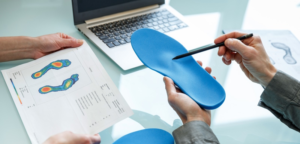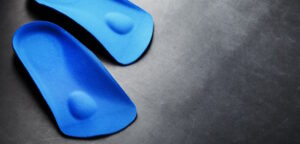Best Practices to Follow That Will Help Maintain the Integrity of Custom Prosthetics
Amputees wear custom prosthetics every day, but what makes them different from clothing or a pair of shoes is how they’re sized to fit one specific person. This ensures the wearer can use their prosthetic more comfortably and that their prosthetic promotes functionality and mobility.
Advanced prosthetics that use internal processors and sensors help amputees achieve a natural walking gait, enhance their coordination, and help them overcome obstacles that challenge their physical abilities.
A lot of time and effort goes into designing and manufacturing custom prosthetics. Depending on the prosthetist you’re working with, it will take somewhere between three to six weeks to create a custom prosthetic limb.
What does this mean? For starters, it means that replacing custom prosthetics isn’t as simple as picking a new one off the shelf. There will be a waiting period as the new prosthetic limb is crafted. Additionally, amputees must go through the insurance claims process again and pay any applicable out-of-pocket expenses.
Naturally, you probably want to do everything possible to stave off early replacement of your custom prosthetic limb. Follow these tips to help extend the lifespan of your prosthetic device, and contact Cotton Orthotic and Prosthetic Associates when it’s time to get fitted again.
How to Maintain Your Prosthetic Device
Proper prosthetic care is key for maximizing its longevity, functionality, and maintaining a comfortable fit. Daily maintenance routines, proactive measures, and adhering to user best practices help ensure your prosthesis stands the test of time while providing you with optimal comfort and mobility.
Cleanliness Is Key
Use cleaning products recommended by your prosthetist to ensure they are compatible with the materials of your prosthetic limb. Avoid harsh chemicals, as they can cause damage and accelerate wear. Stick with mild soaps, wipes, and specialized cleaning solutions for best results.
Regular cleaning prevents the buildup of dirt, sweat, and bacteria on your prosthetic limb. Use mild soap and warm water to clean both the socket and the liner. Be thorough but gentle, ensuring all components are free from residue that may cause discomfort or deterioration. Don’t forget to pat it dry to prevent fungal or mold growth.
Inspect for Wear and Tear
Frequent inspections are vital for catching potential issues early. Check for any signs of wear and tear on the socket, liner, and components. If you notice any damage or changes in fit, consult with Cotton Orthotic and Prosthetic Associates to address your concerns and prevent further complications.
Be Mindful of Your Environment
Temperature, moisture, and other external factors can impact the durability of your prosthetic. Avoid prolonged exposure to direct sunlight, extreme heat or cold, and excessive moisture. When not in use, store your prosthetic in a cool, dry place to prevent material breakdown and to maintain structural integrity.
Manage Moisture Effectively
Moisture control is vital for preventing skin issues and maintaining component integrity. Utilize moisture-wicking liners and socks to keep the residual limb dry. Remove and clean these components regularly to prevent odor and microbial growth.
Proactive Socket Care
Pay attention to the socket fit, as changes in body weight or shape can affect comfort. Regularly assess the socket’s alignment and padding and communicate any fitting issues with your prosthetist. A well-fitted socket is paramount for long-term comfort and mobility.
Treat Your Prosthetic Limb with Care
Although prosthetics are technically inanimate objects, amputees depend on them just as much as their natural limbs. Whether you’re wearing, transporting, or storing your prosthetic, you should do your best to keep it out of harm’s way.
Avoid engaging in activities that can potentially damage your prosthetic, especially if it features internal processors or advanced joint functions.
All prosthetics accumulate wear and tear over the years, but you can get the most out of yours by being mindful of external risks and using your limb solely for functions it’s designed to do.
Never Perform Your Own Adjustments
For folks who fancy themselves as handy with a box of tools, you may feel tempted to adjust your prostheses yourself when something feels off. Although the solution may be as simple as tightening the right screw, you should refrain from making any adjustments yourself.
One error on your part can risk prosthetic malfunctioning. Don’t let your need for an adjustment turn into a repair issue. Call your prosthetist at Cotton Orthotic and Prosthetic Associates to address any fit or functional issues with your advanced prosthetics.
Regularly Check in With Your Prosthetist
Scheduled check-ups with your prosthetist are essential for preventive care. These appointments allow for professional assessments, adjustments, and early intervention if issues arise. Keeping the lines of communication open ensures your prosthetic is tailored to your evolving needs and remains a reliable part of your daily life.
How to Find Custom Prosthetics Near You in Overland Park
Caring for your prosthetic device isn’t just a matter of maintenance; it’s a commitment to your comfort, mobility, and overall well-being. By incorporating these tips into your daily routine and proactively addressing concerns, you can prolong the life of your prosthetic, maintain functionality, and enjoy a comfortable fit that empowers you to embrace life with confidence.
If you’re searching for durable custom prosthetic solutions that will help you achieve your mobility and functional goals, contact the experienced team at Cotton Orthotic and Prosthetic Associates.
During your initial consultation, we will learn more about your medical background, perform an exam, and present you with prosthetic options that support your lifestyle and core needs. We will also walk you through how everything is processed through your insurance carrier and answer any questions you may have.
Call (913) 338-2672 to speak with our scheduling department. You can also contact us by email using our contact form. A member of our front office will promptly get back to you.







